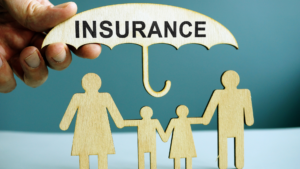There are many things to take into consideration when deciding whether or not you need fire insurance. This article will go over the basics of this type of insurance and what it covers, as well as a few things you might want to keep in mind before signing up for a policy.
What is fire insurance?
If your place catches on fire, you’ll be glad you have fire insurance. Fire insurance is a type of property insurance that covers damage caused by fires. It can also cover other things like smoke damage and damage from explosions.
Most property insurance policies include some coverage for fire, but it might not be enough to fully replace your place or possessions if they’re destroyed in a fire. That’s why it’s important to know what your policy covers and to get enough coverage to protect your family and your assets.
What does a fire insurance policy cover?
A fire insurance policy covers damage caused by fire, smoke, and explosions. It also covers damage from other events, such as lightning strikes and windstorms. Most policies cover the cost of repairing or rebuilding your property, as well as the contents of your property.
Types of Fire Insurance Policies
There are three types of fire insurance policies: basic, broad, and special.
- Basic fire insurance policies cover the dwelling and any attached structures, such as a garage. The policy also covers personal property, such as furniture and clothing.
- Broad fire insurance policies provide coverage for the dwelling, attached structures, and personal property. In addition, this type of policy provides coverage for loss of use. This means that if your property is damaged by a fire, you will be reimbursed for additional living expenses, such as hotel bills.
- Special fire insurance policies are tailored to meet the needs of specific businesses. For example, a restaurant may purchase a special fire insurance policy that covers the loss of food and wine due to a fire.
How much coverage is right for you?
The answer to this question is it depends, as the amount of fire insurance coverage you’ll need depends on a number of factors, including the value of your property and possessions, your risk tolerance, and your budget.
That said, there are some general guidelines you can follow when determining how much fire insurance coverage to purchase. For starters, it’s important to make sure that your coverage limit is high enough to cover the cost of rebuilding your property in the event of a total loss.
You should also consider adding additional coverage for personal belongings such as furniture, clothing, and electronics. And if you have any particularly valuable items, such as jewelry or art, you may want to consider purchasing a separate policy to insure them against loss or damage.
Ultimately, the best way to determine how much fire insurance coverage is right for you is to work with an experienced independent insurance agent who can help you assess your risks and identify the best coverage options for your needs.
How do you get fire insurance?
There are a few things you need to do in order to get fire insurance. The first is to find an insurance company that offers fire insurance. Once you have found a company, you will need to fill out an application. This application will ask you questions about your property, such as its value and the type of construction. It is important, to be honest when filling out this application, as the company will use this information to determine your premium.
After you have submitted your application, the company will review it and provide you with a quote. This quote will include the premium and any deductibles or other fees associated with the policy. Once you have reviewed the quote and decided to purchase the policy, you will need to pay the premium and sign the contract. Make sure that you understand all of the terms and conditions of the policy before signing, as this document is legally binding.
When should you get your policy renewed or updated?
Your policy should be renewed or updated at least once a year, and preferably more often if you live in an area prone to wildfires. You should also update your policy if you’ve made any changes to your property that could affect its fire risk, such as installing new windows or adding a wood-burning stove.




